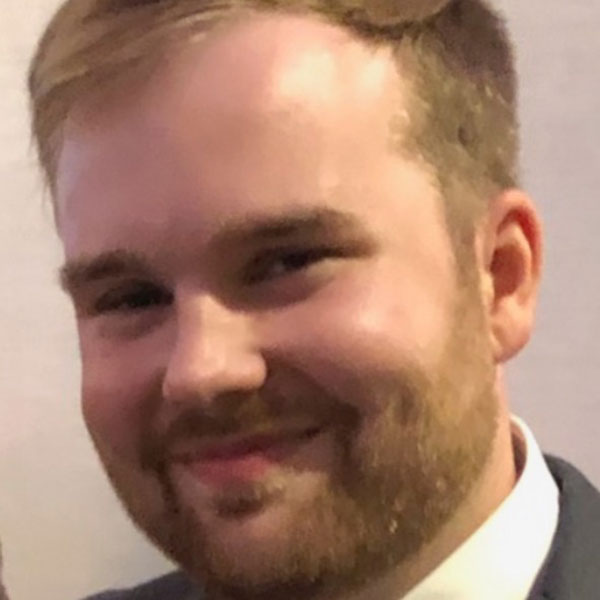AAG Honors Five Geographers with 2014 AAG Enhancing Diversity Award
AAG Honors Five Geographers with 2014 AAG Enhancing Diversity Award
The AAG Enhancing Diversity Award honors those geographers who have pioneered efforts toward or actively participated in efforts toward encouraging a more diverse discipline over the course of several years. To learn more, visit www.aag.org/diversityaward.
This year the AAG Council and the AAG Enhancing Diversity Committee are pleased to recognized a team of five individuals to be honored with the 2014 Enhancing Diversity Award:
- Jay T. Johnson, University of Kansas
- Renee Pualani Louis, University of Kansas
- Laura Smith, Macalaster College
- Zoltan Grossman, The Evergreen State College
- Douglas (RDK) Herman, Smithsonian Institution
In recognizing these geographers together, the committee is also acknowledging teamwork and long-term partnerships by giving the award to all five individuals and the work they have achieved together as well as individually.
Expanding the diversity of any organization, especially when the goal is to have an effect on an entire academic discipline, requires effort at every level. Johnson, Pualani Louis, Smith, Grossman, and Herman have over the past decade worked toward expanding the diversity of the AAG, and geography more broadly, through their leadership of the Indigenous Peoples Specialty Group of the AAG and beyond.
Their goal with IPSG has been primarily focused in two areas: Firstly, to increase the number of Native American, Alaskan Native and Native Hawaiians participating in the AAG, as well as pursuing undergraduate and graduate degrees in geography; Secondly, they have worked to increase the visibility of Indigenous peoples issues before the AAG and by doing so, the discipline in general.
Under their leadership, the number of Indigenous participants at AAG meetings has increased dramatically, including not only undergraduate and graduate students but also community members from various reservation and urban Indigenous communities across North and Central America, Australia and New Zealand. They have brought Indigenous leaders and academics to the AAG annual meetings as plenary speakers, including the late Vine Deloria, Jr., and Winona LaDuke.
In 2006, Professor Johnson proposed an Indigenous Peoples’ Knowledges and Rights Commission to the International Geographical Union, which was approved by the IGU at its regional meeting in Brisbane, Australia. Through the combined efforts of the newly formed IGU commission, the AAG specialty group and the Canadian Association of Geographers Native Canadians Study Group, an Indigenous geographies pre-conference was held in 2008 in Plymouth, Massachusetts, with over 35 geographers from around in the world in attendance. During the first two days of the AAG meeting in Boston, these three groups organized an Indigenous geographies symposium that included paper sessions and panels on various topics representing the broad spectrum of research covered by geographers working with and for Indigenous communities. The keynote speaker for this symposium was Dr. Daniel Wildcat, Director of Environmental Studies at Haskell Indian Nations University. Jay and Laura served two terms as co-chairs of the Indigenous Peoples Specialty Group, while Renee was serving as Treasurer and subsequently took over as Co-Chair with Grossman to continue this work. From the time that this team began working together around 2002, the IPSG has almost doubled in size, from 120 to more than 210 members at present.
These scholars have advanced the status of indigenous geography through the synergies of their individual efforts as well, including ways that have contributed to the IPSG’s success.
Pualani Louis serves as Secretary of the International Geographical Union (IGU)’s Indigenous People’s Knowledges and Rights Commission as well as numerous other professional service roles. She is a Hawaiian woman and an Indigenous cartographer, and has researched place naming, GIS and integration of Indigenous spatial knowledge systems, as well as playing an important role in advancing cross cultural ethical research standards. From 2009 to 2012, she also served as an Advisory Board Member to the AAG’s ALIGNED project, advancing diversity with nearly a dozen pilot undergraduate programs and developing many resources for departments and members.
Johnson has also served with the AAG ALIGNED project as a Representative Pilot Department at the University of Kansas, as well as Chair of their newly founded Diversity Committee inspired by his initiative and involvement. His research interests in indigenous people’s cultural survival and the politics of place has continued to thrive with new roles as Director of the Indigenous Geographies Research Center at KU and as CoPI of the $3 million NSF funded IGERT for an interdisciplinary climate change studies program in collaboration with KU and Haskell Indian Nations University.
Smith has also continued her leadership, scholarship, and service contributions through IPSG and AAG broadly. She has a PhD in Geography with a minor in Law and has been a GIS and land management consultant with the Bois Forte Reservation Tribal Council and the State of Minnesota’s Planning Department.
Grossman is Professor of Geography and Native American and World Indigenous Peoples Studies at Evergreen College in Olympia, Washington. From 2008-2010, he served as Co-Chair for the Indigenous Peoples Specialty Group of the Association of American Geographers. Previously, Grossman has worked as Assistant Professor of Geography and American Indian Studies at the University of Wisconsin-Eau Claire from 2002 to 2005. Co-founder of Midwest Treaty Network to support WI Ojibwe spear fishers attacked for exercising their treaty rights, and then to bring together the tribes and white sport fishing groups to protect the fish from mining projects. In 2008, he attended the United Nations Permanent Forum on Indigenous Issues 7th Session (focusing on climate change), as an Observer from the International Geographical Union (IGU) Indigenous Peoples’ Knowledges and Rights Commission, at UN Headquarters, New York.
Herman is senior geographer for the Smithsonian National Museum of the American Indian and adjunct associate professor at Towson University, Maryland. An early architect of NMAI’s Indigenous geography project, he went on to create Pacific Worlds, a web-based indigenous-geography education project for Hawai’i and the American Pacific. Both projects focus on indigenous cultural knowledge and environmental understandings. He has published several articles and given numerous scholarly presentations regarding the representation of Indigenous cultures and the importance of Indigenous knowledge.


